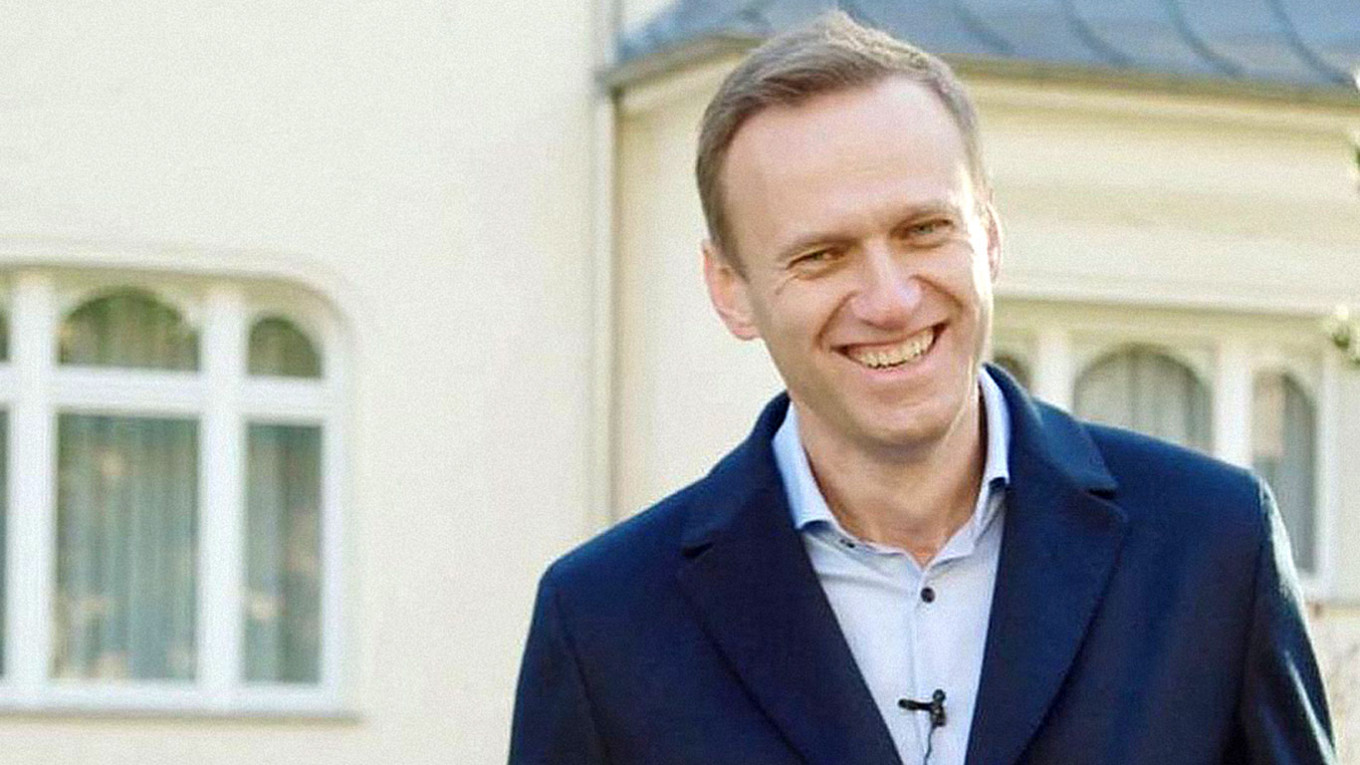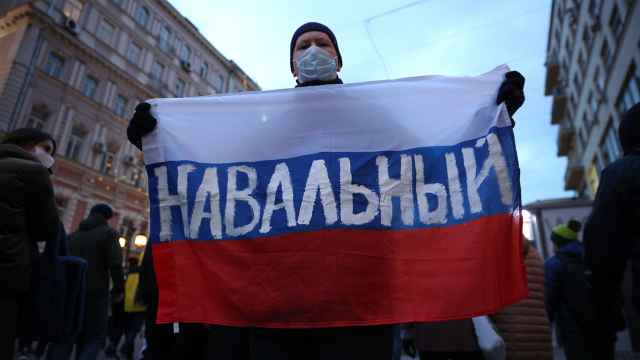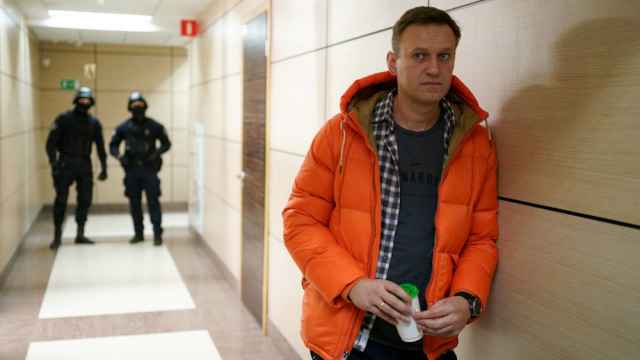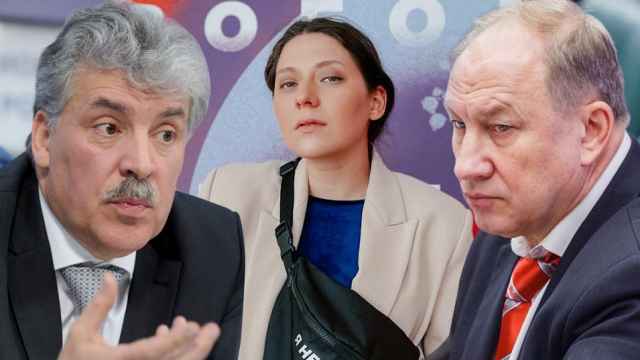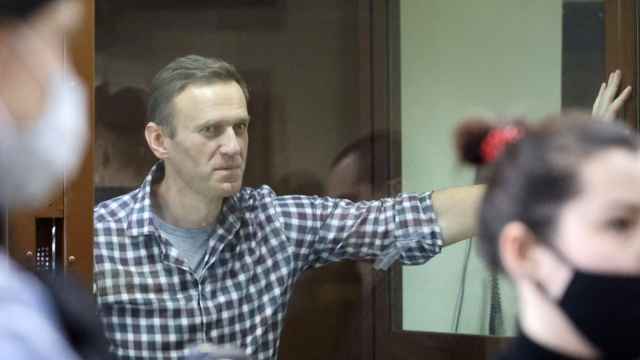“Come on, Daniel, no — no way,” Alexei Navalny tells director Daniel Roher in the new documentary about the Kremlin critic, which premiered this week at the Sundance film festival.
Roher had asked Navalny what message he would give to Russians should he be arrested — or worse — upon his return to Russia from Germany where he was being treated for nerve agent poisoning.
“It’s like you’re making a movie for the case of my death,” Navalny says in English, laughing. “But let that be another movie. Movie number two. Let’s make a thriller of this film. And in case I’m murdered, then make a boring film of memory.”
Navalny seems to have gotten his request. Roher’s fast-paced account of his poisoning and the bombshell investigation that unmasked his would-be assassins is as much thriller as it is documentary. Combining original interviews with Alexei, his wife Yulia, daughter Dasha and closest aides, as well as behind-the-scenes footage of how the investigation came together, “Navalny” is a dramatic, compelling and accessible portrait of Navalny as David, trying to take on the Goliath of Vladimir Putin.
For those who have followed Navalny’s story, the documentary adds depth and details — if nothing groundbreaking — to the story of the most consequential months of his years-long campaign to unseat Putin, starting with his poisoning in Siberia and medical evacuation to Germany, up to his return to Russia and arrest at Moscow’s Sheremetyevo airport.
All the different sides of Navlany’s character — politician, activist, journalist, showman, husband, father — are on display. Along with questions of legacy, Putin’s Russia and what “President Navalny” would look like, Roher also briefly probes Navalny’s previous association with right-wing nationalists and asks about his childhood.
But seasoned Russia-watchers looking for something new — or some final answer to the question of “Who is Alexei Navalny?” — are not the film’s intended audience.
“Navalny is a household name to many. After this documentary we hope he will be a household name to everybody,” Sundance programmer Sudeep Sharma said in an introduction broadcast before the film.
'Totally unbelievable'
The movie’s highest drama surrounds the extraordinary phone call between Navalny, pretending to be a government bureaucrat, and one of his would-be assassins. In the call, hitman Konstantin Kudryavstev admits to lacing Navalny’s underwear with Novichok and outlines how his team had “rehearsed” and “planned” the attempted murder multiple times.
“So we know everything,” Navalny says coolly.
And then later after the phone call: “Poor guy. They will kill him. They will definitely kill him. He’s a dead man.”
“It’s totally unbelievable. I would never believe it if I wasn’t part of it,” he says.
From the vantage of January 2022 — with Navalny imprisoned, his organizations dismantled and team exiled — his desire not to make a “film of memory” is poignant. In his opening remarks at Sundance, Roher acknowledged this dichotomy between the on-screen events — an invigorated Navalny, strategizing, plotting, and energizing his supporters — and the Kremlin critic’s current situation.
“It’s a very bittersweet experience today. By the time people are watching this, Alexei will have been in prison in tough conditions for about a year. I’m thinking of Alexei today, and I hope when this film is finished, you will be thinking of him as well.”
"Navalny” was commissioned by CNN Films and HBO Max, with Amy Entelis and Courtney Sexton of CNN Films, and Navalny’s associate Maria Pevchikh as executive producers. It will be available for streaming in the U.S. on HBO Max. Foreign rights have not yet been determined.
A Message from The Moscow Times:
Dear readers,
We are facing unprecedented challenges. Russia's Prosecutor General's Office has designated The Moscow Times as an "undesirable" organization, criminalizing our work and putting our staff at risk of prosecution. This follows our earlier unjust labeling as a "foreign agent."
These actions are direct attempts to silence independent journalism in Russia. The authorities claim our work "discredits the decisions of the Russian leadership." We see things differently: we strive to provide accurate, unbiased reporting on Russia.
We, the journalists of The Moscow Times, refuse to be silenced. But to continue our work, we need your help.
Your support, no matter how small, makes a world of difference. If you can, please support us monthly starting from just $2. It's quick to set up, and every contribution makes a significant impact.
By supporting The Moscow Times, you're defending open, independent journalism in the face of repression. Thank you for standing with us.
Remind me later.



